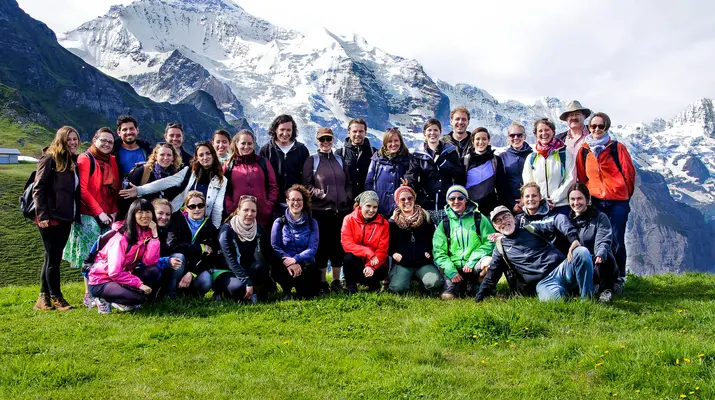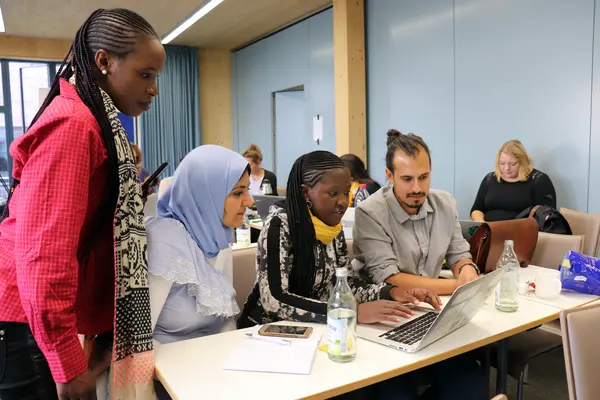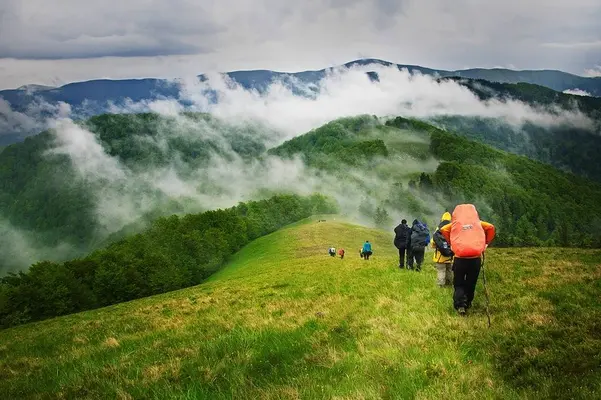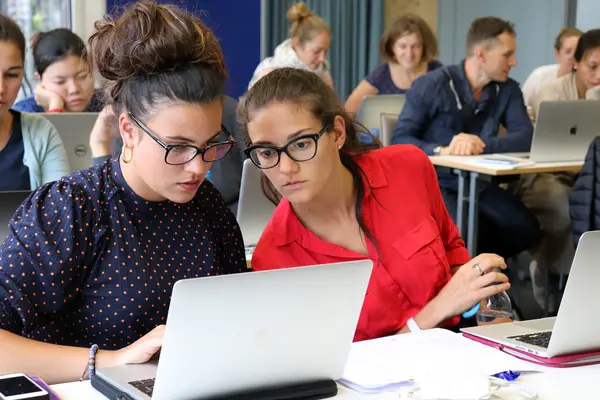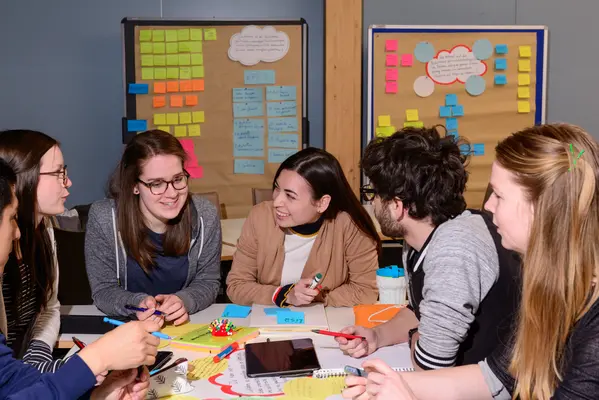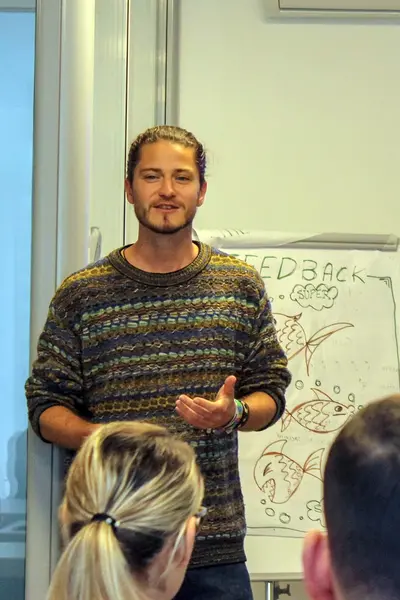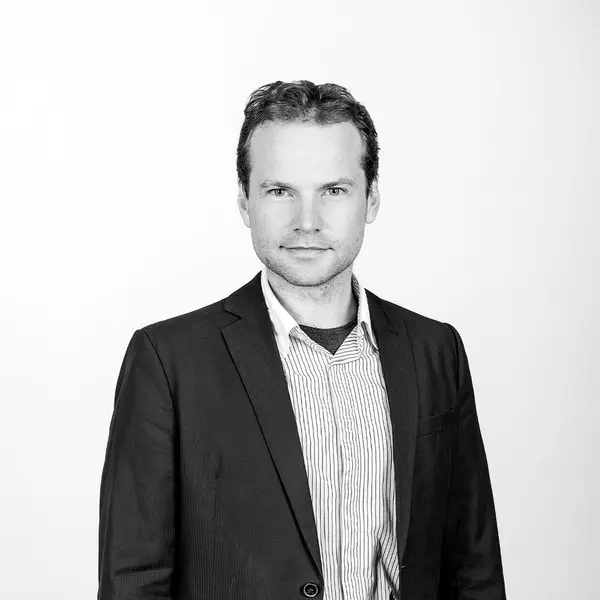Individual study contents
The aim of the programme is to meet the requirements of modern tourism management with data-driven decisions in line with the 17 SDGs.
The programme covers all levels of the value chain (companies, destinations, politics) in both a German-speaking and international context.
The programme consists of four semesters. In the first semester, we take a holistic look at tourism in the destination but also in marketing and deepen our understanding of data and sustainability and the interplay between these two focal points.
In the second semester, we deepen our knowledge in a large applied project in direct implementation with partners from the industry and in the third semester, you can choose between a practical project or a semester abroad. The programme ends with the Master's thesis in the fourth semester.
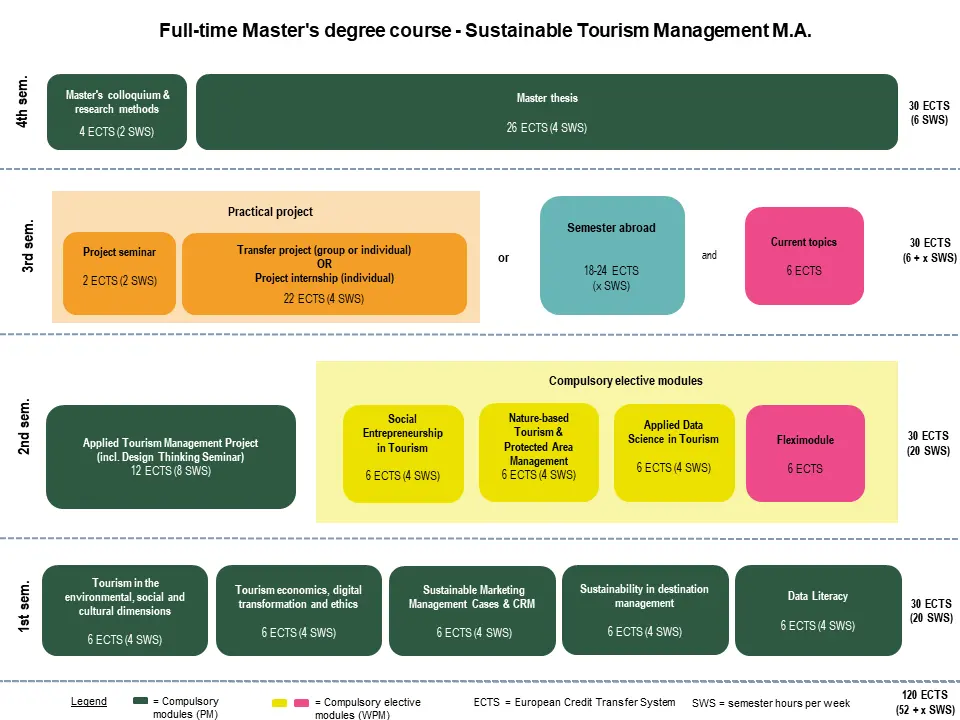
Modules per semester
In the first semester, you will familiarise yourself with economic, ecological and social sustainability topics as well as marketing and management content. You will practise scientific work and familiarise yourself with data literacy.
In this module, we teach the economics of the tourism industry, introduce you to digital business models, the internet and platform economy, and the impact of digital transformation. We look at and discuss critical economic approaches as well as ethical aspects of digitalisation, economics and the tourism industry.
Basic principles of sustainable development and the application to tourism, the development and forms of sustainable tourism, basics of ecological sustainability, environmental impacts, social impacts of tourism as well as consumption patterns and the sustainability affinity of those in demand are topics of this module.
The module teaches marketing basics and specifics of tourism marketing. You will learn marketing conception, planning, positioning, communication and distribution as a strategic approach to marketing. The course addresses sustainable business management in the field of marketing from a scientific and practical perspective.
The module offers definitions of destination, destination management organisation (DMO), levels of spatial planning in Germany, EIA and impact regulation, tourism planning as a task of destination management, development of tourism concepts. You will gain knowledge on sustainability in destination development and sustainable mobility.
In the second semester, you can choose from four compulsory elective modules in addition to the compulsory module. With the Fleximodule, we also offer you the opportunity to replace a compulsory elective module with a module from other degree programmes or even other universities.
You will receive an introduction to nature conservation, conservation strategies, types of protected areas, protected area management, visitor management and infrastructure, nature and ecotourism offers, the economic importance of tourism for protected areas, UNESCO World Heritage sites, geoparks/star parks and tourism as well as national and international case studies.
In the third semester our students can choose between three options: the transfer project, the project internship or a semester abroad. Within the third and fourth semester, you will earn a total of eight ECTS points in "Special Elective Modules".
You will be prepared for the management of your project in a joint project seminar . This is followed by several individual meetings to discuss the project with the lecturer in charge of the project.
In a transfer project , students work on a project for a practice partner in a group. In doing so, they transfer knowledge from the university into practice. Transfer projects mainly take place in Brandenburg and Berlin, but can also be carried out in other regions of Germany or abroad.
You complete your project internship individually. You will also work on a project for a practice partner. Practical partners for project internships and transfer projects can be, for example, tourism companies, associations or regions. They often emerge from the diverse networks of the lecturers.
As an alternative to the project internship or the transfer project, you can also do a Semester abroad at a partner university in a comparable degree programme. For example, we have cooperation agreements with the University of Cagliari (UNICA) and the University of Sassari in Sardinia as well as the University of Uppsala in Sweden.
You can select special elective modules from our degree programme as well as from certain other HNEE degree programmes or even from our international partner universities. This includes, for example, "Regional Public Relations and Regional Marketing" from the HNEE degree programme Sustainable Regional Development - but also many others!
The fourth semester is almost exclusively reserved for writing the Master's thesis. In addition, you can take outstanding compulsory elective modules, which must result in a total of eight ECTS within the third and fourth semester. This includes, for example, the subject excursion, which offers you not only subject-specific input but also a wonderful group experience.
The colloquium deals intensively with the research process and the creation of a scientific thesis at Master's level. The preparation of your independent research as well as the corresponding report takes place in the form of a master's thesis. Finally, you will defend your master's thesis in an oral presentation.
In the fourth semester, we also offer you a subject excursion to a European country as a special elective module. During the excursion, topics from the compulsory modules of the first and second semesters are taken up and illustrated with examples in the target country. In the past, these included England, Spain, Estonia, Slovenia, Sweden and Switzerland.
FAQ study contents
The courses usually take place from Monday to Friday from 9.30 a.m. to 3.15 p.m. as block teaching. In special cases (e.g. guest lecturers), the teaching times may vary and sometimes take place at the weekend.
We offer this degree programme as a full-time and part-time option.
You are very free to choose your internship partner and the project topic within certain guidelines (e.g. tourism and sustainability-related, technical requirements). You will be briefed by us at two information events about the internship semester and the requirements. After a successful search, the internship partner and project topic must also be informally approved by the internship semester coordinator and all three parties conclude an agreement. However, our internship semester officer and our lecturers also receive numerous offers from our partners, some of whom have been with us for many years, which they make available to you in a bundled form. If you need further help with your search, our internship semester officer will be happy to assist you. You can also find offers for practical projects on the Career Service job portal.
Yes, you can. However, we only recommend that you aim for a semester abroad if you have already gained sufficient and relevant practical experience.
In a project internship, you are integrated into a company and complete an internship of at least 15 weeks. In a transfer project, you are not integrated into a company, but rather take on the role of a tourism consultant who develops a well-founded project for a practice partner. A transfer project lasts 17 weeks and can also be completed in a group with fellow students.
You can spend a semester abroad at one of our international partner universities with which we have signed a Memorandum of Understanding. These are currently:
| Country | University | study programme | semester abroad | Transfer project | Project internship | Compulsory elective modules | Double degree |
|---|---|---|---|---|---|---|---|
| Sweden (Gotland) | Uppsala University | Sustainable Destination Development | yes | yes | yes | no | no |
| Czech Republic | Palacky University Olomouc | Department of Recreation and Leisure Studies | no | yes | yes | yes | no |
| croatia | University of Rijeka | Sustainable Tourism Development | no | no | no | yes | no |
| Italy (Sardinia) | University of Sassari | Innovation Management for Sustainable Tourism | yes | yes | yes | yes | yes |
| Italy (Sardinia) | UNICA University of Cagliari | Sustainable Tourism Management and Monitoring | yes | yes | yes | no | no |
| Spain (Mallorca) | Universitat de les Illes Baleares | Master in Economics of Tourism: Monitoring and Evaluation | yes | yes | yes | no | no |
| Dominican Republic | Pontificia universidad Católica Madre y Maestra | no | yes | yes | no | no |
With a few exceptions, the courses take place in person.
This depends on the module and the excursion destination. If the excursion takes place within Berlin or Brandenburg, at least the transport costs are usually covered by your Eberswalde Green Card.
Costs (usually no more than €500) are incurred for the field trip, which you can, but do not have to, take as a special compulsory elective module in the 4th semester.
